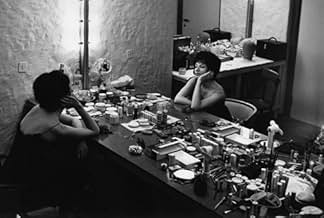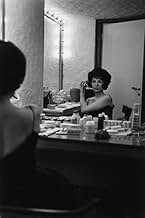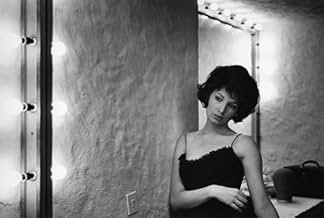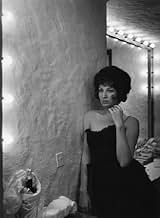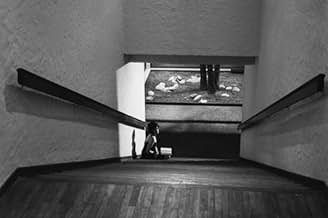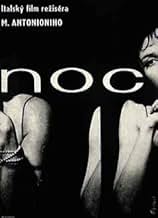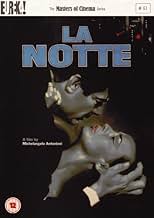Un jour dans la vie d'un couple marié infidèle et la détérioration progressive de leur relation.Un jour dans la vie d'un couple marié infidèle et la détérioration progressive de leur relation.Un jour dans la vie d'un couple marié infidèle et la détérioration progressive de leur relation.
- Prix
- 6 victoires et 4 nominations au total
- Il signor Fanti
- (as Guido Ajmone Marsan)
- Sé stesso
- (uncredited)
- Un invitato alla festa
- (uncredited)
- Sé stesso
- (uncredited)
Histoire
Le saviez-vous
- AnecdotesThis movie was one of Stanley Kubrick's 10 favorite films and received four votes from critics and six votes from directors in the 2012 Sight & Sound greatest films poll.
- GaffesWhen Giovanni pours champagne in the hospital, Bernhard Wicki (Tommaso) looks straight into the camera while turning his head from Lidia to Giovanni.
- Citations
Lidia: [reading from a piece of paper] "When I awoke this morning, you were still asleep. As I slowly emerged from my slumber, I heard your gentle breathing and through the wisps of hair over your face I saw your closed eyes and I could barely contain my emotion. I wanted to cry out, to wake you up, because you slept so deeply, you almost seemed lifeless. In the half light, the skin of your arms and throat appeared so vibrant, so warm and dry that I longed to press my lips against it, but the thought of disturbing your sleep, of you awake in my arms again, held me back. I preferred you like this, something on one could take from me bacause it was mine alone - - this image of you that would be everlasting. Beyond your face I saw my own reflection in a vision that was pure and deep. I saw you in a dimension that encompassed all the times of my life, all the years to come, even the years past as I was preparing to meet you. That was the little miracle of this waking moment: to feel for the first time that you were and always would be mine and that this night would go on forever with you beside me, - with the warmth of your blood, your thoughts, and your will mixed with mine. At that moment, I realized how much I loved you, Lidia, and the intensity of the emotion was such that tears welled up in my eyes. For I felt that this must never end, that all our lives should be like an echo of this dawn, with you no belonging to me but actually a part of me, something breathing within me that could could ever destroy except the apathy of habit, which is the only threat I see. Then you awoke and with a sleepy smile, kissed me, and I felt there was nothing to fear that we'd always be as we were at that moment, bound by something stronger than time and habit."
- ConnexionsFeatured in Cinq colonnes à la une: Episode dated 1 December 1961 (1961)
As the film opens, one morning in Milano, married couple Giovanni (Marcello Mastroianni) and Lidia (Jeanne Moreau) visit their friend Tomasso (Bernhard Wicki) in the hospital as he lays dying. Lidia is clearly shaken by the experience and, after Giovanni leaves for an appearance to promote his new book, the camera tracks Lidia through a long, aimless walk around Milano as she processes her thoughts. Here Antonioni (anticipating his later film Il Deserto Rosso) shows the drastically changing face of Milano in the postwar construction boom, and the appearance of new tech gadgetry in everyday life, as just one more way people can feel they have nothing certain they can hold on to in this world.
Giovanni and Lidia, while never outright squabbling, have clearly grown cold towards each other. Gradually one begins to wonder if there is any life left in their marriage whatsoever. Things come to a head, however, when Giovanni and Lidia go that evening to a party at a rich industrialist's villa, and Antonioni's favourite actress Monica Vitti appears. Vitti's role as a foil to Giovanni and Lidia is powerful and moving, but I think its precise nature should be left unsaid here, as it's better audiences aren't spoiled first.
A mere description of the plot might seem like nothing happens in this film besides bored people talking and yet another mid-century European cinematic tale of adultery. But LA NOTTE is a film of incredible visual poetry, almost like the work of Andrei Tarkovsky. Even scenes that evoke the characters' boredom are shot as such beautiful tableaux that the viewer is enraptured. Antonioni often shoots his characters reflected in mirrors and the like, and there is some cinematic legerdemain here that just makes you go "wow".
Appearing in Antonioni's body of work between two similar films that are often considered a trilogy, LA NOTTE has often got less buzz than its predecessor L'AVVENTURA, with its daring plot twist, or its successor L'ECLISSE with its chic Monica Vitti-Alain Delon love affair. But I think that in terms of the picture-perfect visuals and elegant pacing, LA NOTTE deserves every bit as much praise as those other two classic films.
- crculver
- 12 mai 2017
- Lien permanent
Meilleurs choix
- How long is La Notte?Propulsé par Alexa
Détails
Box-office
- Brut – États-Unis et Canada
- 39 236 $ US
- Fin de semaine d'ouverture – États-Unis et Canada
- 10 547 $ US
- 18 sept. 2016
- Brut – à l'échelle mondiale
- 40 703 $ US
- Durée2 heures 2 minutes
- Couleur
- Rapport de forme
- 1.85 : 1
Contribuer à cette page




